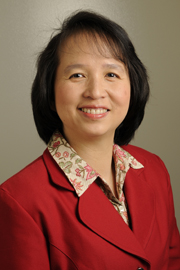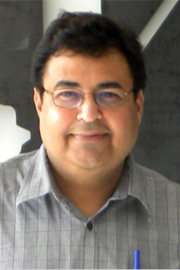Faculty Research
Michelle A. Parent, Ph.D., MT(ASCP)
Associate Professor
Research Interest - Immunology/Microbiology, Immunity to Infection
Yersinia pestis, a facultative intracellular gram-negative bacillus, is the causative agent of plague. Recent vaccine trials, using a Y. pestis specific protein-subunit in nonhuman primates, resulted in the generation of high antibody titers; however, vaccination failed to protect against a lethal pneumonic infection. Given that the current vaccine generates robust humoral immunity yet does not protect against pneumonic infection, we hypothesized that cell-mediated immunity is required in addition to humoral immunity for complete protection.
Toward that end, my laboratory is focusing on identifying and understanding those aspects of the immune response needed to survive a lethal pneumonic infection. Using mouse models, different vaccination regimens and attenuated Y. pestis, our goal is to understand the underlying mechanisms of a protective immune response directed against Y. pestis in order to produce a more efficacious vaccine.
For more information, please visit my webpage.
Huey-Jen Lin, Ph.D.; MT(ASCP)
Associate Professor
Examine how epigenetically silenced tumor suppressor genes influence tumor initiation, progression and metastasis in breast and pancreatic cancers. My long-term research objective is to examine how aberrant signaling molecules regulate epigenomes and lead to a wide spectrum of malignant phenotypes , primarily in breast and pancreatic cancers. The ultimate goals are: to identify the microenvironmental cause (s) leading to tumorigenesis, decipher how dysregulated signaling pathways contribute to neoplasm by altering epigenomes, discover potential diagnostic bio-markers, and develop specific therapeutic strategies by correcting signaling molecules.
For more information, please visit my webpage.
Raelene Maser, Ph.D., MT(ASCP)
Associate Professor
Research Interest - Diabetes, Diabetic Neuropathy
Diabetes is in epidemic proportions with 300 million adults predicted to have the disease by 2025. Unfortunately, complications such as neuropathy (i.e., damage to the nerves), retinopathy, nephropathy, and macrovascular disease may arise as a result of the presence of diabetes. My research interest is in the area of diabetic neuropathy, particularly nerves that control the autonomic nervous system (ANS). The ANS has an important regulatory role of the cardiovascular system with dysfunction of the ANS resulting in a broad range of impairments (e.g., increased cardiovascular workload, hemodynamic stress, serious dysrhythmias, and significant cardiac pathology).
In persons with diabetes, impaired cardiovascular autonomic nervous system activity is characterized by a reduction in parasympathetic tone with a relative increase in sympathetic activity. Cardiovascular autonomic dysfunction is specifically associated with a number of clinically significant manifestations including exercise intolerance, intraoperative cardiovascular lability, orthostatic hypotension, silent myocardial ischemia, and increased risk of mortality. Clinical investigations that we are now currently enrolling participants for focus on: (a) measuring cardiovascular autonomic function and (b) searching for potential treatment modalities for cardiovascular autonomic dysfunction.
Mary Ann McLane, Ph.D., MLS
Professor
Research Interest - Oncology, Cancer Metastasis
The vast majority of cells in our body can communicate with their environment by means of special cell surface proteins called receptors. One very important family of receptors is known as the INTEGRINS, and they are responsible for a wide variety of cell-to-cell interactions, such as wound healing, fertilization, inflammation, blood clotting (thrombosis) and cancer. It is important to understand how these cell receptors function, since such knowledge can lead to the development of therapeutic treatments which can prevent thrombotic events or cancer metastasis. One group of naturally-occurring proteins which is providing some answers is the DISINTEGRINS, isolated from snake venom. Disintegrins can block the action of integrins found on blood vessel walls, blood cells and cancer cells. My research is using genetically-engineered disintegrins to study the function of receptors found on the surface of two blood cell types (platelets and lymphocytes) and proteins found on blood vessel walls.
For more information, please visit my webpage.
Arun Kumar Ph.D.
Assistant Professor
Research Interest - Nanomedicine, nanotoxicity, tissue engineering and biomedical devices
My research interests are nanomedicine, nanotoxicity, tissue engineering and biomedical devices. Nanomedicine will have extraordinary and far-reaching implications for the medical profession, for the definition of disease, for the diagnosis and treatment of medical conditions including aging, and ultimately for the improvement and extension of natural human biological structure and function. Currently I am investigating nanoencapsulated natural compounds to treat cardiac disorders and a novel way to deliver nanoparticles coupled with drugs to the deep lung utilizing a biocompatible cell-based system and deliver therapy through the peripheral vasculature instead of a pulmonary route. Further, I am expanding this approach to develop cell-based therapeutic applications to diseases such as Alzheimer’s, Parkinson’s, brain trauma, cardiomyopathies, cancer, gene therapy and chronic lung disease.
For more information, please visit my webpage.















